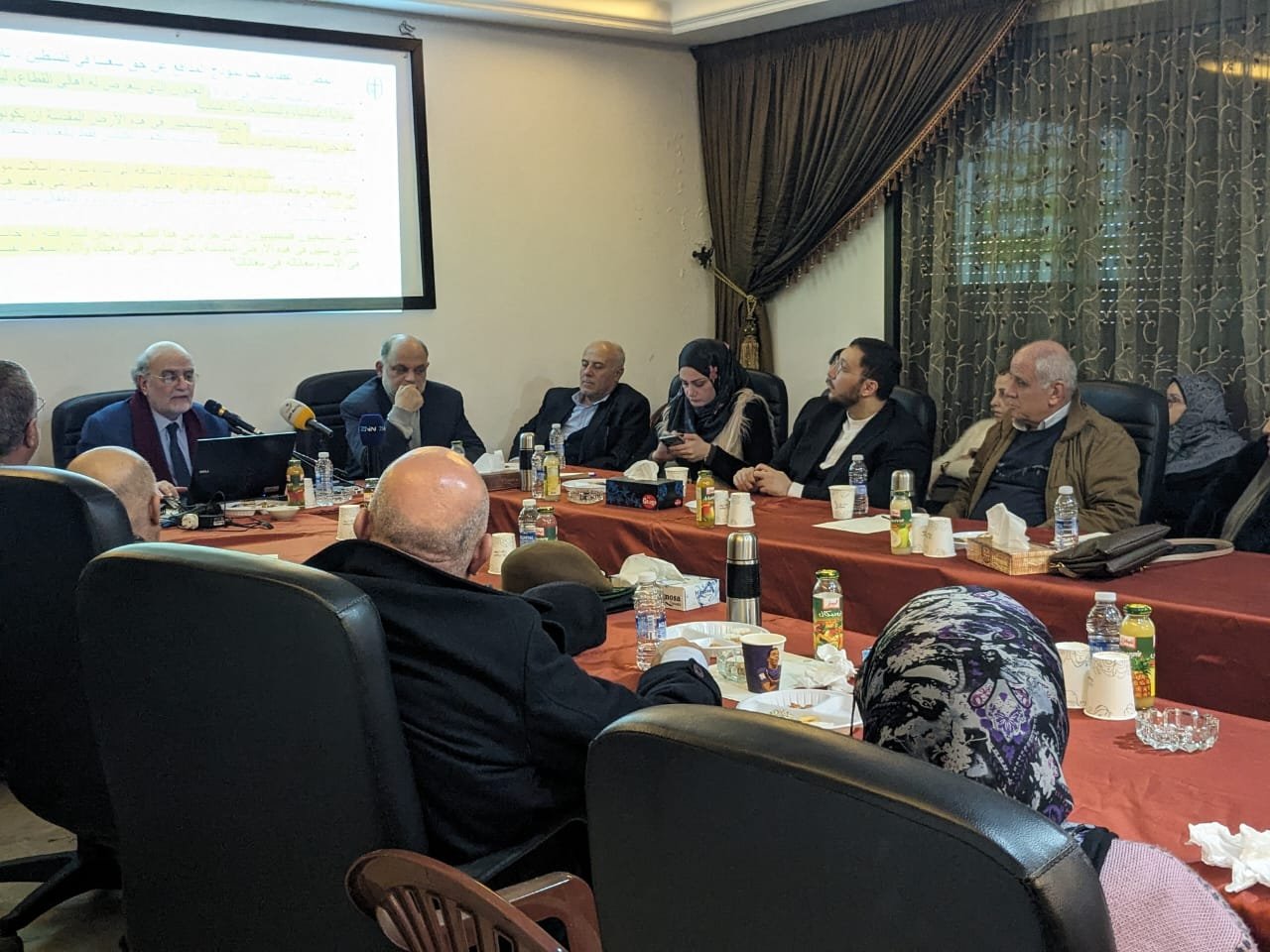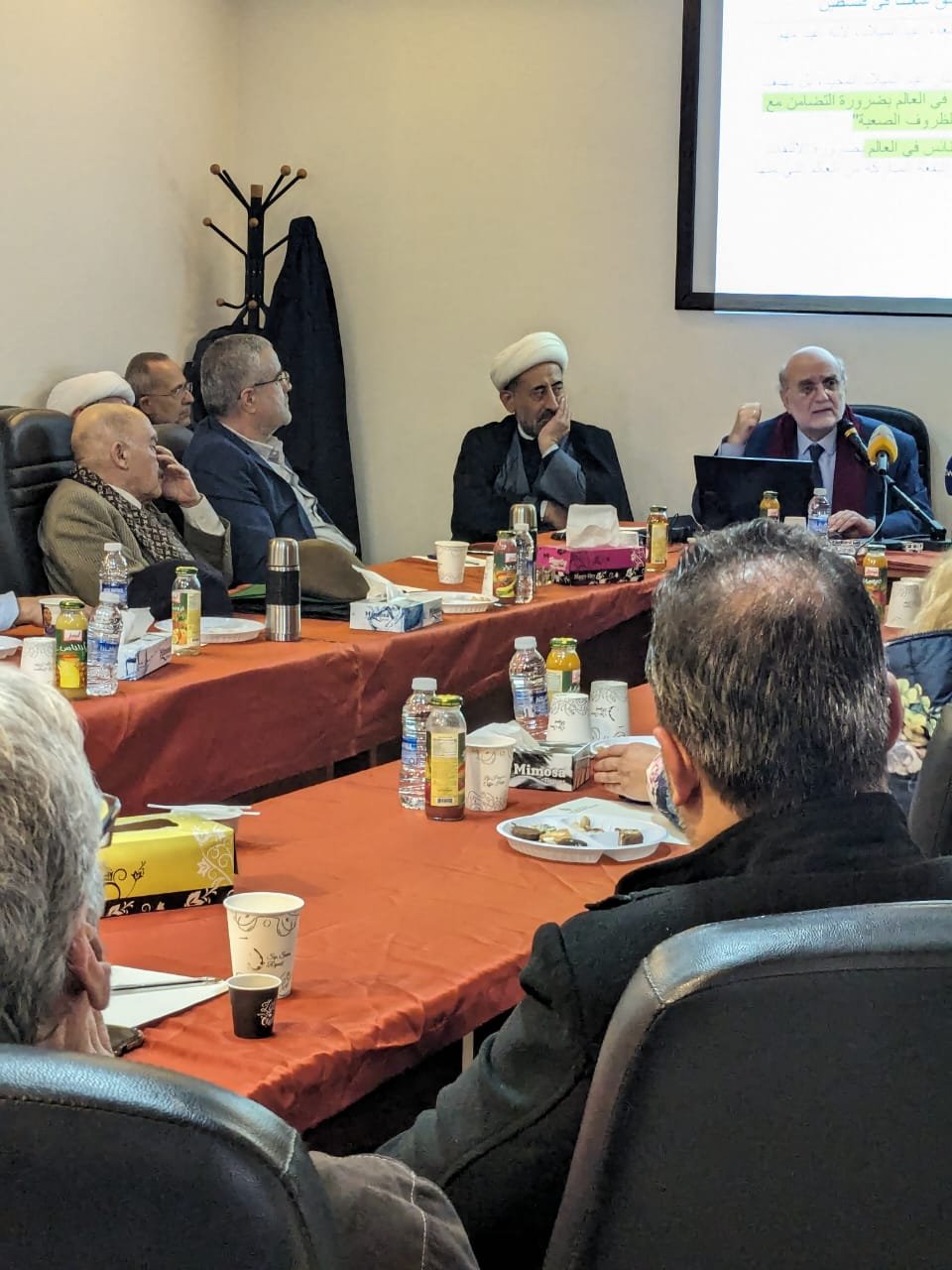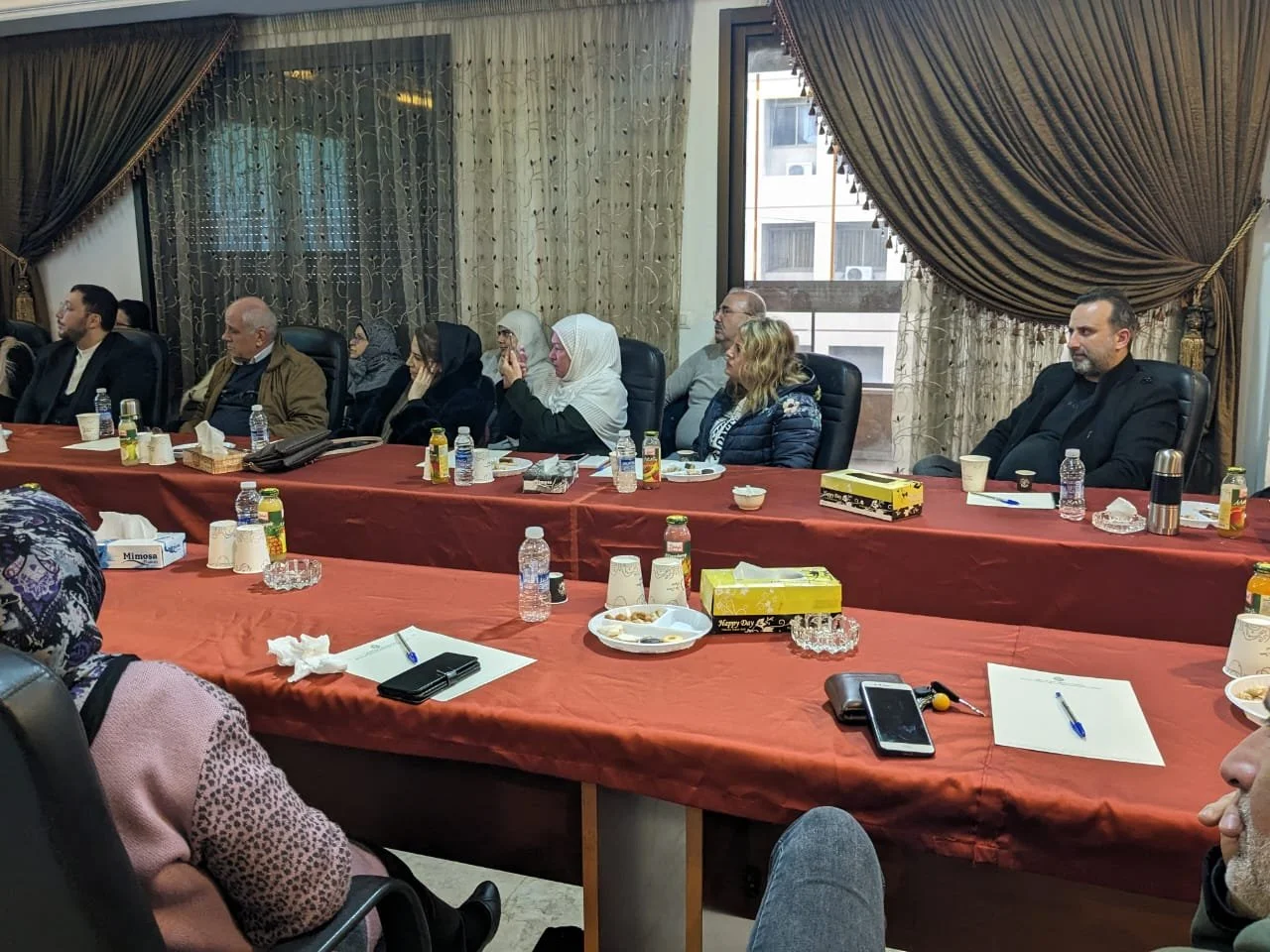A Dialogue Meeting with the MECC Secretary General Dr. Michel Abs, at the Civilization Center for the Development of Islamic Thought - Lebanon
Dr. Abs: The Palestinian issue is an issue of right and justice above all else, and therefore it finds its support at the core of Christian belief
The Civilization Center for the Development of Islamic Thought organized a dialogue meeting with the Secretary General of Middle East Council of Churches (MECC) Dr. Michel Abs, under the title “The Role of the Eastern Church in Defending the Palestinian Cause: The case of the war on Gaza,” in the presence of religious, media, cultural, academic and social personalities. The conference took place on Thursday 25 January 2024, at the Civilization Center for the Development of Islamic Thought in Lebanon.
The meeting began with a speech addressed by the media officer at the Civilization Center for the Development of Islamic Thought journalist Kassem Kassir, in which he affirmed that “Tawafan Al-Aqsa is a historical event that shook the entire world on many levels, and that despite the pain and destruction, there are resistance fighters who are heroic, and thanks to their sacrifices, a new day will dawn.” Kassir added, "Today we are hosting Dr. Michel Abs to ask where the Churches stand in this scene and what is the role of the Vatican, especially since MECC was the first to write about Christian Zionism."
Then, the Secretary General of the Middle East Council of Churches Dr. Michel Abs gave his lecture on the Church and the Palestinian cause, during which he made an introduction on MECC and its mission, in addition to its work on the Palestinian problem. He also talked about the ongoing war in Gaza and the statement issued by MECC following the outbreak of the recent events there, as well as the statement issued at the last meeting of the MECC Executive Committee. He also highlighted the Christmas 2023 message that he addressed, in which he talked about the dire situation in Gaza. Moreover, Dr. Abs presented the positions and statements of the Church Leaders in the Middle East regarding the painful events in Gaza.
In his lecture, Dr. Abs concluded that “the Palestinian cause is an issue of right and justice above all else, and therefore it finds its support at the core of the Christian belief,” highlighting the national dimension of this issue as “the people and Leaders of the Churches are the people of this nation and therefore they are nationally concerned with the Palestinian cause.” He continued, "During the Palestine War, and decades before it, members of the Churches were the first to warn about the Zionist threat. Many Church Leaders have contributed to the struggle for Palestinian rights till today. Moreover, the Churches of the West and its Western public opinion are taking positions that are the result of our interaction with them."
Dr. Abs added, “Bishop Kabuji was imprisoned, and Pope Shenouda prohibited the Copts from visiting Palestine as long as it is under occupation, despite the signing of the peace treaty between Egypt and the occupying entity. Religious Leaders, as well as MECC, contributed to the resistance to the occupation in the South of Lebanon thorough development efforts. Resisting the occupations is an inevitable fate in our country, by virtue of its history and geography.”
Dr. Abs also said that the ways that Churches are supporting the Palestinian cause, are manifested in “first: the position and the declarations - ideological steadfastness; second: communication, advocacy and networking - political steadfastness; third: educating people, urging them and directing them to the right position and action - popular steadfastness; fourth: material support through donations - economic steadfastness, and fifth: through development projects - social resilience.”
Afterwards, the Secretary General of the Middle East Council of Churches Dr. Michel Abs answered the participants’ questions and inquiries and a discussion took place about the church and the Palestinians.
At the end, the journalist Nadine Khazaal recited a poem entitled “Palestine, O Wedding of Jasmin.”





